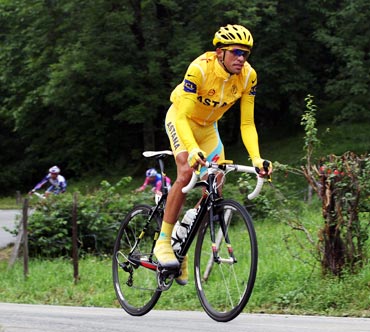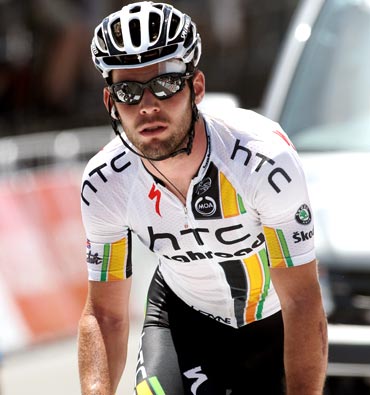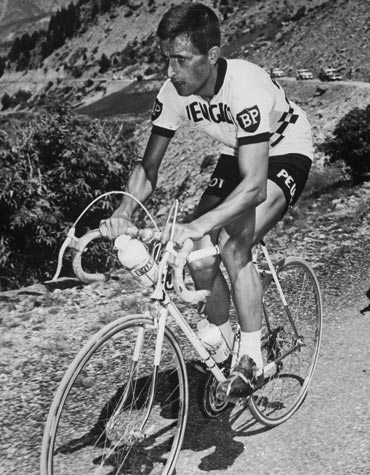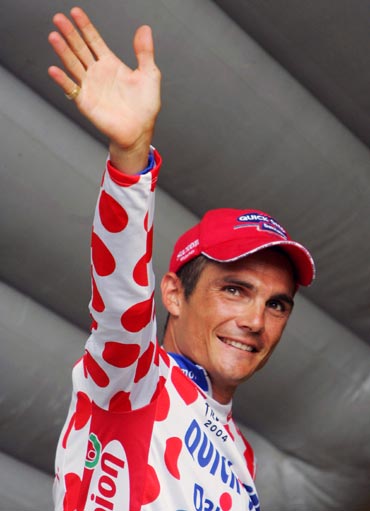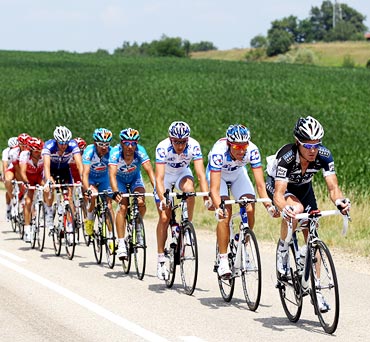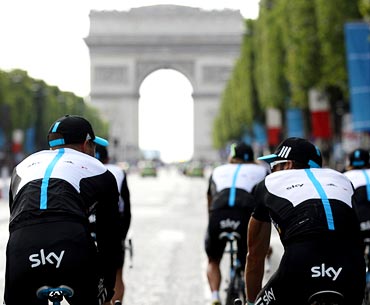 | « Back to article | Print this article |
How come Alberto Contador can take part?
The Tour de France starts on Saturday from Passage de Gois. Here are some key questions and answers about the three-week race:
How come Alberto Contador can take part in the Tour when he failed a dope test?
In September, the three-times Tour champion announced he had been informed that a urine sample tested during the 2010 Tour was positive for the banned drug clenbuterol. The traces were minute and Contador said they possibly came from contaminated meat.
The Spanish Cycling Federation finally cleared the 28-year-old rider in February. Since then, both the International Cycling Union (UCI) and the World Anti Doping Agency (WADA) have appealed against the ruling to the Court of Arbitration for Sport (CAS).
The Lausanne-based court said they would not reach a decision before the beginning of August, clearing the way for the Spaniard to defend his crown. Pending the decision, Contador won several races, including the Giro d'Italia.
Photographs: Getty Images
Can a Briton win the Tour de France?
Why will Mark Cavendish never win the Tour de France?
Because the Briton, arguably the best sprinter in the world, is not a good climber. Since 1913, the final standings of the Tour have been based on the overall time clocked by each rider, adding the time of each stage.
Time gaps in mountain stages are far bigger than in flat stages, giving climbers a huge advantage over sprinters. On the other hand, climbers, who are usually diminutive and light, often lose precious time in individual time trials, which favour powerful riders.
In the last few years, the event has been won by climbers -- Oscar Pereiro, Contador and Carlos Sastre -- yet most great Tour riders are all-rounders, winning both time trials and mountain stages.
Cavendish has improved in climbs in recent seasons and is the favourite to win the points standings green jersey he narrowly lost to Italy's Alessandro Petacchi last year and to Norway's Thor Hushovd in 2009.
Can a Briton win the Tour?
When Bradley Wiggins finished fourth in 2009, hopes rose that a Briton might at long last win the world's most famous cycling race. But the pursuit Olympic champion faltered badly in the next edition, finishing 24th as the leader of the wealthy Team Sky outfit assembled around him.
Wiggins's victory in the recent Criterium du Dauphine revived his chances and he himself admitted a podium placing was probably within reach. When launching Team Sky two seasons ago, team director Dave Brailsford said he hoped to place a Briton on the top spot within five years.
Have there been deaths on the Tour?
What was the highest stage finish on the Tour?
The highest stage finish was in 1986, when the finish line was at the top of the Col du Grandon at 2,413 metres.
The record will be surpassed in this Tour in the 18th stage at the top of the Galibier, at 2,645 metres.
The stage marks the 100th anniversary of the first Galibier climb in 1911, when France's Emile Georget was the first to reach the summit. Georget impressed at the time because he did not put a foot down.
Have there been deaths on the Tour?
The most famous fatality was the death of Briton Tom Simpson on the Mount Ventoux in 1967.
Simpson was only the second rider to die on the Tour after Spain's Francisco Cepeda in 1935. The third and most recent casualty was in 1995, when Italian Olympic champion Fabio Casartelli crashed to his death in the Pyrenees.
Do bicycles have engines?
This might have seemed a silly question before allegations last season that some professional riders might have used bikes equipped with miniature engines concealed in the frame. All those accused vigorously denied any wrongdoing but the International Cycling Union (UCI) took the issue seriously enough to announce that all bikes on the Tour would be scanned to detect engines. New rumours circulated this season but nothing could be proved.
Why is the Tour overall leader's jersey yellow?
Why is the Tour overall leader's jersey yellow?
In 1919, Tour organisers decided the race leader should wear a special jersey making him easy for spectators to identify. They picked yellow as it was the colour of the paper on which L'Auto, the sports daily sponsoring the race, was printed.
What is the green jersey?
It is awarded for the points classification and a great consolation prize for sprinters as they usually win more stages, albeit by a slimmer margin.
Points are awarded to the top finishers in each stage; the rider finishing with the most points wins the jersey. The record green jersey winner is German Erik Zabel, who won it six times.
What is the polka dot jersey?
It is the jersey awarded to the best climber of the Tour or 'King of the Mountains'. Points are awarded at the top of each hill or mountain, rated from fourth to first category depending on the difficulty. Some exceptionally tough climbs, such as L'Alpe d'Huez or Mont Ventoux, are rated "hors categorie" (out of category).
The polka dot design was chosen as it was the same as one of the jersey's sponsors. The record winner of the King of the Mountains jersey is Frenchman Richard Virenque, who earned it seven times.
Why do riders often finish in the same time?
Why do riders often finish in the same time?
Because only whole seconds are taken into account in the overall standings and not fractions of seconds. It is the convention in road cycling that all the riders included in the same group are given the same time on the finish line regardless of whether they are at the front or the back.
Another rule, applying only to flat stages, states that a rider who crashes in the last three kilometers will be awarded the same time as the group he was in before crashing.
Cycling is an individual sport so why are there teams?
The Tour is raced by 20 teams of nine riders. Each team usually includes a leader - the man with the best chance for the final classification - sprinters, climbers and every type of rider who can help the team to win a stage, take a jersey and bring home prize money.
When some 200 competitors ride in a bunch at around 50 kph, the rider s at the front waste much more energy than the ones immediately behind, who are sheltered from the headwind. This is why team mates are often seen riding ahead of their leader - they are protecting him from the wind.
Team mates often act for their leaders in other ways, passing on one of their wheels if he punctures or picking up bottles and bags at the feeding zones.
How do riders urinate?
What is a "bordure"?
Also called an echelon, it is one of the nightmares of the peloton. When the wind is strong and blowing sideways, it can split the bunch into little groups which are no longer sheltered inside the main bunch. They lose contact, find themselves on the most exposed side of the road and can lose considerable time.
It happened to Contador two years ago in a stage finish in La Grande Motte.
What is the "omnibus?"
Also called the "gruppetto" (Italian for small group), it is the group formed by poor climbers in the mountain stages to help each other make it to the finish line at a reasonable pace, but inside the time limits.
How do riders urinate?
Spending some five hours on the bike, riders sometimes have to urinate during a stage. If the race is raging at full speed, riders do so on their bikes but most of the time they stop early in the stage when the pace is leisurely. It is an unwritten rule of the peloton that you do not attack when a rider or a group has stopped to urinate.

© Copyright 2024 Reuters Limited. All rights reserved. Republication or redistribution of Reuters content, including by framing or similar means, is expressly prohibited without the prior written consent of Reuters. Reuters shall not be liable for any errors or delays in the content, or for any actions taken in reliance thereon.
